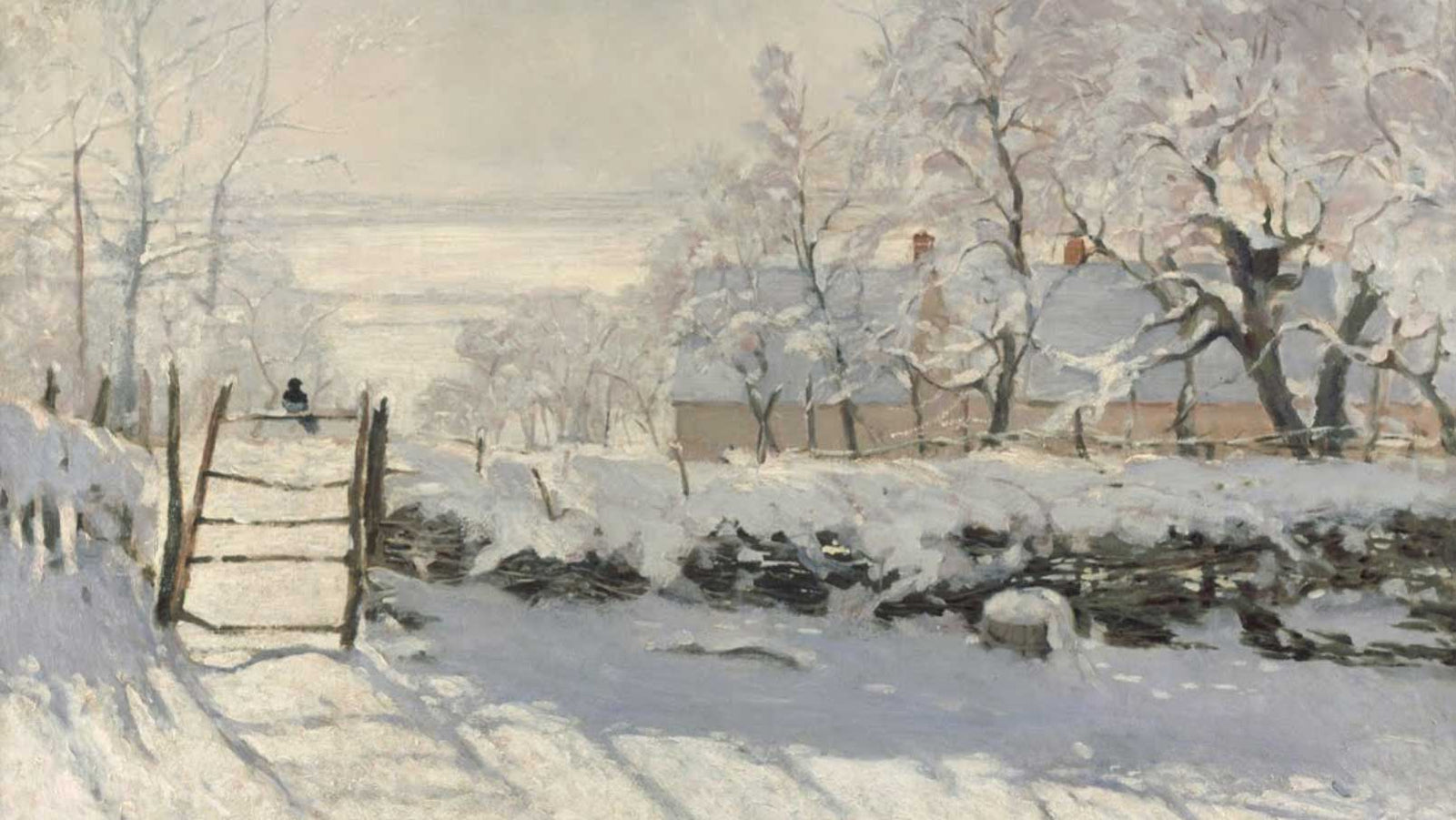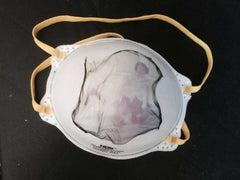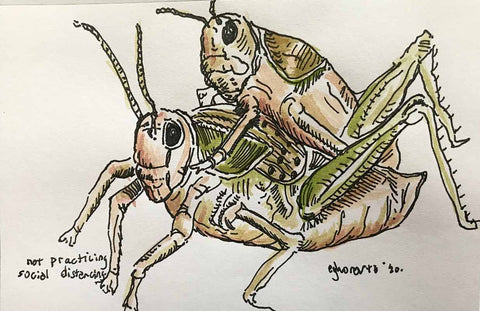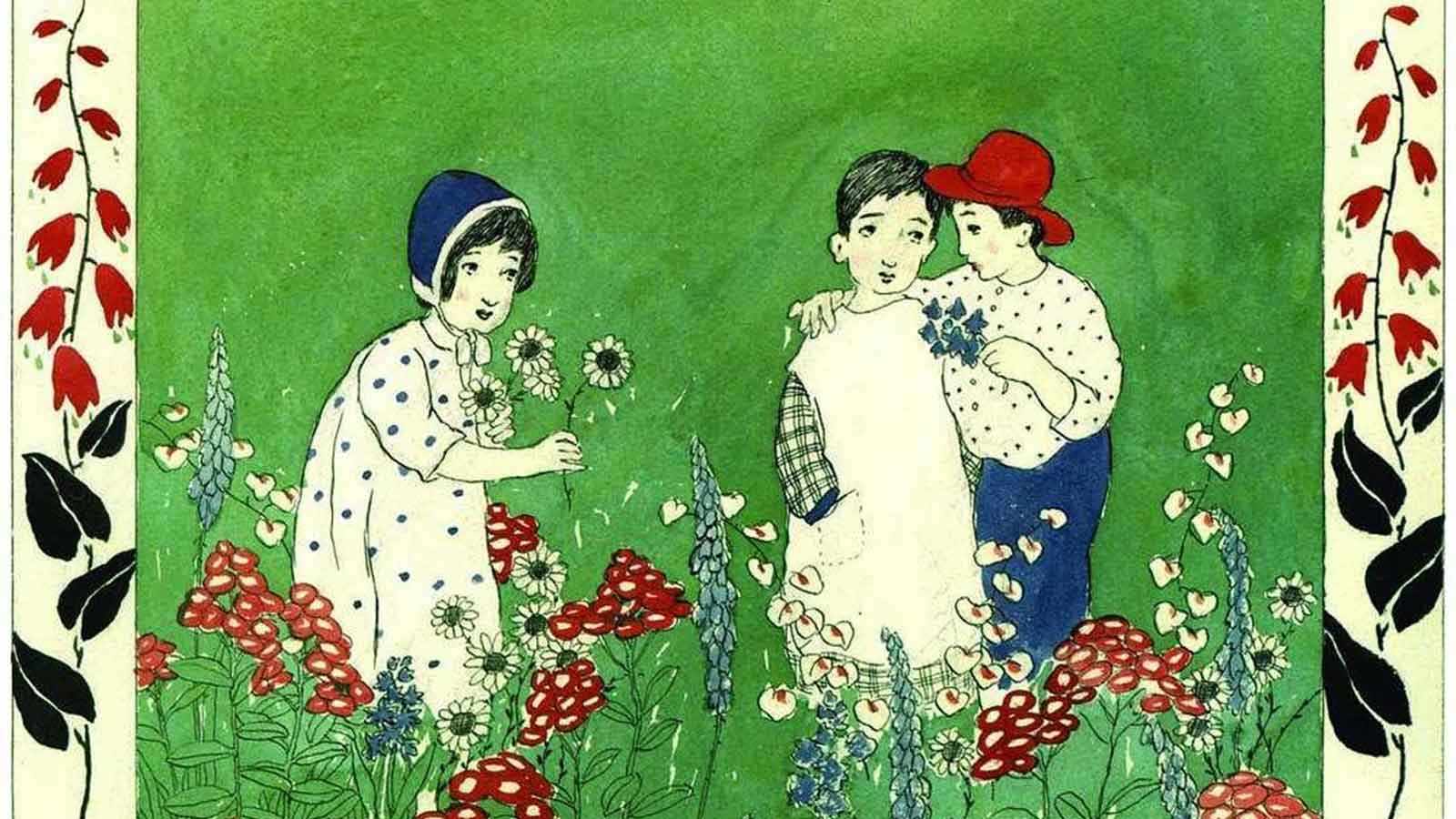peace, love and tea!

"The Magpie", by Claude Monet
My friend Jane, a published Chinese writer recently published a blog post journaling her experiences and thoughts during the month and a half long period following the coronavirus outbreak in China.
As I was reading it, I felt an urge to translate it for my friends in America. It resonated with some of my own experiences and feelings and helped me organize thoughts that I also wished to express. I believe this article can bring a refreshing perspective to us who live in America through Jane’s dialogue with herself as she travels from Shanghai to Berlin. I hope my translation effort can contribute to a better understanding between different cultures and bring some peace while we live through these challenging times.
Evening, March 15: a message from Vincent popped up on my screen telling me that he was watching a documentary about Wuhan along with many news reports about the battle against the coronavirus epidemic in China. As a pharmaceutical researcher himself, he sighed, what an enormous effort the Chinese medical staff and the Chinese people have made. He said, respect! And hoped that now Europe could carry it on through. Vincent is a friend of mine. He works as a researcher in the largest pharmaceutical company here in Germany.
I was touched, feeling that non-Chinese people are now beginning to understand how arduous the battle had just been in China. However, as I sat at my desk in that moment, I never expected that the coronavirus pandemic had already begun.
Back at the end of January, after spending the Chinese New Year in Shanghai, I returned to Germany. At the time, the epidemic had already broken out in Wuhan, but the rest of the world did not feel very different. Most flights were still taking off according to schedule. Only at Pudong (Shanghai) Airport was it strictly enforced that each and every passenger had to fill out a health form and have their body temperature measured. Everyone consciously and strictly wore a mask when they boarded the plane. After a 10-hour flight, we landed in Finland’s Helsinki Airport. As soon as I exited from the plane, a completely different, much more relaxed scene unfolded before my eyes. Only passengers on flights from China wore masks, while in the rest of the European airport, it was business as usual. Some people quietly took off their masks as soon as they got off the plane and rushed to their next connecting flight. Helsinki was my transit stop where I entered the EU border. The airport customs was as impassive as usual. I hold an EU resident card and crossed through without trouble. A lady in front of me on a travel visa was questioned for a long time about her return plan, but they do this all the time anyway. There was not yet any hypervigilance towards Chinese passengers flying in, and international travel was not restricted.
I ordered a cocktail at the airport while waiting for my connecting flight to Berlin, hoping the drink would calm my nerves. Coming from a country where the entire nation’s nerves were all wound up for a war against a virus, the relaxed scene in front me on the European continent seemed almost surreal. I began to feel that the virus was still quite far from Europe. I could breathe again.
I debated continuously whether or not I should take off my mask. After all, wearing it made me stand out like some kind of alien. But I hesitated and decided that I’d still keep it on. Waiting in line to board the plane to Berlin, there were a few Japanese people, all wearing masks. I stood with them and did not feel quite so singled out. I kept my mask on throughout the whole flight to Berlin and so did the other Asians. A European passenger in the row behind me had been coughing, but as neither the flight attendants, nor the rest of the passengers batted an eye, I closed my eyes and enjoyed the flight.
After I landed in Berlin, I stepped out of the airport and called a ride. When the driver saw me wearing a mask, he paused for a moment.
He asked me, “Chinese?”
I said, “Yes.”
He paused again for another two seconds, but in the end, he still loaded my luggage and let me get into the car. Classic symphonic music was playing in the car, and I could smell the scent of the hand sanitizer he was silently applying. We didn’t talk. In my head, I said to him: “Don't be afraid; I’m wearing a mask to protect you.” By then, I no longer worried about the virus, only that I would be discriminated against for being Asian.
When I returned to Berlin on January 29, the number of people infected in Germany was still zero. German infectious disease experts said there was no need to panic, that the new virus was not any more severe than the flu. Life went on as usual. I bought some food from a supermarket and started my two-week self-quarantine. I knew I was fine as I had spent nearly all my time at home when I was in Shanghai, but I still decided to see no one and stay alone inside. After all, I had just traveled on intercontinental flights. Neighbors kindly took the initiative to say hello to me. They did not deliberately keep their distance because I was an Asian who had just returned from China.
I felt safe in Europe but continued worrying about China, about Wuhan. As soon as I opened my eyes each morning, I would read updates on the epidemic in China and nag my parents not to go out, my mood fluctuating wildly like in this viral image on Chinese social media:

[ID: a freeform zigzag line with labels at each peak and valley starting from the bottom. 1st low: Fuck this! Are you even human??, 1st high: Oh, I’m so moved! This is really incredible!, 2nd low: Fuck!, 2nd high: Incredible! 3rd low: Fuck!, 3rd high: Incredible! etc. /end ID]
At the same time, news about rising anti-Asian discrimination around the world began pouring in: “Chinese woman attacked in subway”, “novel coronavirus dubbed the ‘Chinese virus’”—
Non-Chinese people began sending me videos of various Asians eating all manner of animals, asking me if they were real. It left me with a very strange feeling in my gut. I sighed—indeed, the fortunes of a nation and the fortunes of its people are inextricably tied. If I couldn’t control the unfavorable opinions and ignorant accusations directed towards me, then I could only focus on managing myself well. To my relief, most of my friends in Germany reassured me that they thought it was completely absurd to blame Asians for the virus.
Two weeks passed quickly. As no cases were found in Berlin, I stepped out of my apartment without a mask and participated in daily life again. I even partied at the Berlin Film Festival. In this lively party full of people, the only Asians present were a young man and myself. He came over to greet me and jokingly said, “Look, the space between us and the rest of the crowd is so large. Is it because Europeans are afraid of the virus and want to keep their distance from us?” Actually, he said, he had grown up in Germany and never been to Asia. When my German friend introduced me to their colleague, this man even made a point to say, “This is Jane. She just returned from China, but self-isolated for two weeks, so she’s virus-free now!”
It was a rainy weekend. I slipped into a packed cinema after the party. As I watched the Europeans around me laughing with the movie, wine glasses in hand, I felt that life was so wonderfully peaceful and content. Thousands of miles away, the lurking danger was still as far from here as it had been before. In my circle of Chinese friends in Germany, everyone busied themselves shopping for masks to send to China. I also searched my local supermarket for disinfectant, masks, and other personal protective supplies in the hopes of sending some as well.
After the weekend, things changed. The German government began to call on people to stock up on supplies. Friends in the UK and northern Europe sent messages to ask me whether the news was true because the governments there had not yet reacted to the situation. I searched the Internet for information, trying to decide whether or not to stock up on a lot of food for myself and whether or not to buy masks. My search results concluded that most people opposed laypeople hoarding N95 masks, which should instead be reserved for medical staff who needed them the most. I read that doctors in Europe and North America did not recommend wearing masks because ordinary masks could only help prevent you from touching your face. Of course, masks were already mostly unavailable to buy anyway.
 To wear or not to wear a mask also became the main subject of heated arguments between Chinese wives and their German husbands. My German and American friends told me that unless everyone wore N95s, masks were useless within 6 feet. In the following week, everyone in Chinese circles reminded each other to wear masks, but in Germany, to wear a mask is to self-identify as sick.
To wear or not to wear a mask also became the main subject of heated arguments between Chinese wives and their German husbands. My German and American friends told me that unless everyone wore N95s, masks were useless within 6 feet. In the following week, everyone in Chinese circles reminded each other to wear masks, but in Germany, to wear a mask is to self-identify as sick.
[Image: N95 mask with photo transfer by Ellen Horovitz]
Soon after, a larger-scale epidemic broke out in Italy and Germany. The number of infected cases jumped from the single digits to the thousands within two weeks. The coronavirus epidemic became a global pandemic. People around the world began hoarding toilet paper. All of a sudden, everyone was bombarded with endless streams of information, news articles, and wildly divided opinions.
The Chinese media reported that all of Europe was at stake—anti-Asian discrimination had long since ceased to be the point. Anyone could be a carrier of the virus. We all shared the same fate in this global community. Some Chinese people began to accuse Europeans and Americans for their indifference and inaction in dealing with the collective crisis.
Along with the rapid growth of the pandemic, various Chinese articles mocking foreign nations for "copying our homework" began to appear. I tried hard to stay calm while being stunned by the malicious titles and scathing tones. But looking at my surroundings, it was clear those articles were nothing but worthless drivel.
Head muddled after a day of news and online opinions, I desperately needed fresh air. It was late at night; I took a walk on the streets. I passed lovely bistros, small restaurants. Through the glimmering windows, I saw people inside enjoying an ordinary weekend evening, laughing, drinking, glasses clinking, bantering. I also passed many homes and through the windows, I saw people playing instruments, reading books, chatting in their living rooms. Not a trace of the fear or unfamiliarity of a pandemic.
In my head, a voice had been questioning for quite some time: "Why don't they wear masks? Do they value fun over their own lives?" But that night, in that moment, I suddenly realized that Europeans grew up in such a culture—it would be ridiculous to expect them to give up their way of life overnight when faced with some terrible foe. As the Hungarian poet Sandor Petofi wrote over a century ago, “… For my love I will sacrifice life/For liberty I will sacrifice my love”.
To be honest, as I moved through those glimmering moments on the streets of Berlin, I suddenly both envied and admired them. Compared to a Chinese person like me, who grew up with the collectivist ideals of Confucianism, controlling the individual self for the sake of the whole, always preparing for the future, for every possible danger that might come, ready to sacrifice the self—these Europeans appeared so much more secure. They were unwilling to give up their freedom and daily lives to become neurotic about every little detail for the sake of the epidemic. But then, who’s to say that refusing to prepare for danger, refusing to worry about an uncertain future might not also be a great disadvantage?
I remember saying to an Italian friend of mine back in China in early January, “You Italians are really too relaxed and carefree—aren’t you worried about the national economy?”
He looked at me in amazement and said, “Why should we worry about this and that? You Chinese are always desperately working so hard and desperately saving money—we also don't get it.” Suddenly I felt like I understood. I can’t just ask friends why they still aren’t anxious, why they aren’t worrying about this or that—this is just their culture, the way they’re used to living. When they truly feel unsafe, naturally, they too will react to danger.
With the rapid development of the pandemic, various governments have also responded differently. The Germans bluntly estimated that 60% -70% of the population would likely be infected. The UK debated whether or not to adopt a non-isolation policy to achieve herd immunity. For the Chinese people living in Europe, the stark difference in culture made them feel incomparably conflicted. Some panicked, some criticized, some wanted to return to China.
Just like renowned doctor Zhang Wenhong of Huashan Hospital said, we must reflect upon the mistakes we made in the early stages. However, it isn’t possible to transplant the methods we used in the later stages into other countries to achieve the same level of effectiveness: the systems and cultures in place are different. This is a battle that no one has ever fought before. The novel coronavirus is a new kind of virus in the history of human evolution. With its debut, it has thrown the world into panic and chaos with its novelty, its unknown nature—this is why we fear it. But humans have encountered many unknown viruses before and, with the advancement of modern medicine, developed vaccines and discovered solutions. Viruses are no longer so frightening, and eventually become common diseases. We’re just caught in the whirlpool of history.
 I watched interviews with the German virologist Christian Drosten. He is the world's top virology expert and also known as the "Zhong Nanshan" * of Germany. He talked not about eliminating the spread of the virus outright, but about coexisting with the virus and what appropriate medical response and treatment might look like, especially “critical care beds”. His cool, rational, and dispassionate demeanor actually made me feel more grounded. The Germans don’t seem to have much romanticism. If you stood on your balcony and started to sing like the Italians, you would be scolded by your neighbors and told to go inside to consult the housing manual. They seem to value self-discipline and are fond of rules. [Image: "not practicing social distancing" by Ellen Horovitz]
I watched interviews with the German virologist Christian Drosten. He is the world's top virology expert and also known as the "Zhong Nanshan" * of Germany. He talked not about eliminating the spread of the virus outright, but about coexisting with the virus and what appropriate medical response and treatment might look like, especially “critical care beds”. His cool, rational, and dispassionate demeanor actually made me feel more grounded. The Germans don’t seem to have much romanticism. If you stood on your balcony and started to sing like the Italians, you would be scolded by your neighbors and told to go inside to consult the housing manual. They seem to value self-discipline and are fond of rules. [Image: "not practicing social distancing" by Ellen Horovitz]
* [T/N: Chinese epidemiologist/pulmonologist who discovered and led the management of the SARS coronavirus in 2003. He is also currently advising the management of the COVID-19 situation in China.]
Since the beginning of the outbreak in Europe, my German friends and neighbors remind me to wash my hands every day, while my Chinese friends and family remind me to wear a mask.
A German friend told me that there are many aspects of the Chinese medical response that could serve as an example for the West, but each country's national conditions, culture, political system, medical care, and economic trade-offs are different. There were also many other overseas Chinese friends who thought that we should each respect our cultural environments and follow the anti-epidemic recommendations of the local health department.
This month-and-a-half-long emotional rollercoaster has shaken my inner world and reshaped my thinking like never before. In this world, whether you are in the East or the West, whether you unite an entire billion-people country against the oncoming tsunami or stay calm in the face of nature, whether you wear a mask or wash your hands—everything has its natural beginning and end.
When responding to a disaster, there is always a process. Above all, we must stay humble, reflective, thankful, compassionate, empathetic in our hearts.
Whenever the world is thrown into chaos, there are always ignorant voices that do more harm than good. Quite a few media outlets in the West irresponsibly demonize China, just as some media in China irresponsibly demonizes the West. Some people take the opportunity to fan the flames, to take quotes out of context, to use the uneven distribution of information in order to make up rumors, and take pleasure in pouring oil on the fire, while others analyze and report from a single, narrow-minded perspective. There are also those hiding behind their keyboards, using "the pain suffered by the Chinese people" as both excuse and shield to violently attack those who do not agree with their ideas.
A little over a month ago, someone posted a bat video on social media and asked the Chinese why they didn’t ban wildlife consumption, allowing for such a global catastrophe. You can’t knock open their brains and tell them that the vast majority of Chinese actually don’t consider bats food. At around the same time, “CDC Confirms first coronavirus case of unknown origin in the US” was translated by a sensational Chinese tabloid into, “the first case of the novel coronavirus came from the United States”. Because of the virus, countless rumors were born from incomplete information and language barriers, one after another.
I despise rumors. Rumors make people in the global village alienate, condemn, and lose empathy for one another. But sometimes, I might also be the one who believes, and even forwards, one or two of these rumors.
To make everyone see to the truth and source of a situation is no easy thing. What we can do is deepen our understanding instead of mindlessly passing around misinformation, hold off our judgments, and take actions to alleviate the sufferings of the world.
 When faced with the complexity of today's globalized world, in order to change and broaden our perspectives, to think independently and shake off our own prejudices, we need to first be able to acquire direct information, unfiltered and uninterpreted.
When faced with the complexity of today's globalized world, in order to change and broaden our perspectives, to think independently and shake off our own prejudices, we need to first be able to acquire direct information, unfiltered and uninterpreted.
Only then can we begin to accept and comfort each other. Only when we begin to understand different brain circuits formed through different cultural influences will we be able to genuinely pass warm smiles and winks of encouragement to one another under the same viral sky, leaving no place for abusive accusations and bullying.
When I see the Italians dancing, singing opera and playing the violin on the balcony with all their unparalleled artistic talents, when I see doctors in Wuhan stop to gaze at the sunset on their way to accompany their patients for CT scans, when I see doctors in full protective gear dancing to Swan Lake to send off their recovered patients, I feel in my heart, just like what Vincent expressed to me tonight, respect!
[Image: "Wuhan Doctor stops to look at the sunset on their way to accompany patients for CT scan"]
Original Author: Jane简安 | Jane N G; Translated by: Maxine Ge, ed. Clara Ng
Original article here: https://mp.weixin.qq.com/s/Sq51T5eBs3Bl2SQbdtFYAw

[Image: by artist Jo Grundy, United Kingdom]
Comments will be approved before showing up.

I have been wondering recently what activities to do in the spring when the pandemic is finally over. I thought about the Japanese writer Natsume Soseki. In his “Prescription on Earth” he suggested:
“Because I want to wear my favorite coat, having a date and falling in love would be a pretty good thing.”